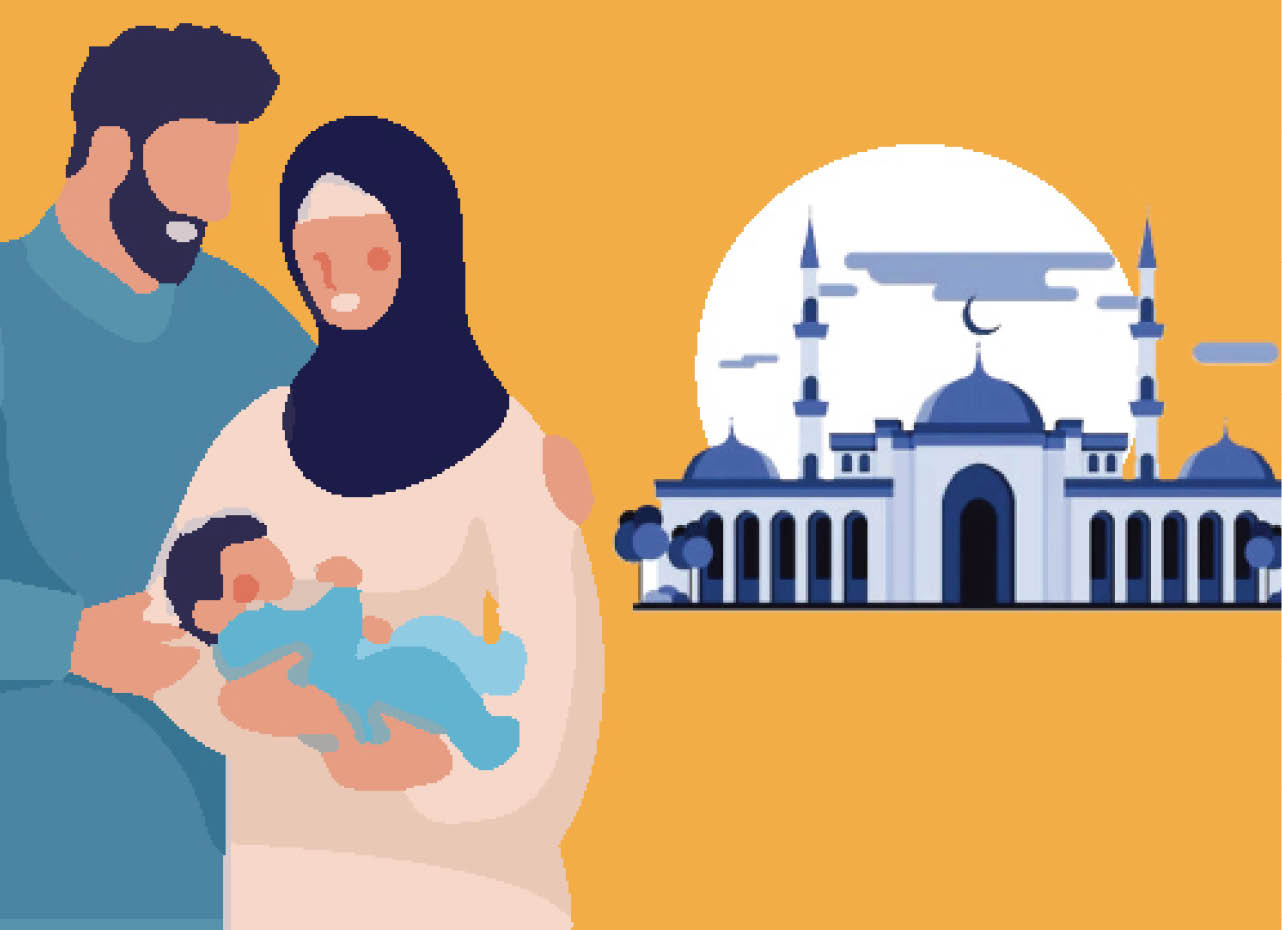As modern technology continues to break cultural barriers and as the global village keeps contracting into one borderless hamlet, the tradition of child naming after its birth is one aspect of the life of Muslims in this part of the world that has failed and is continuously failing to resist the influence of civilizations that are alien to the orthodox culture of Muslims. The modernity of this trend is not in giving a child another name in addition to its Muslim name because this practice is as old as Muslim culture. It is rather in the stylish dimensions that have come to characterize the trend.
Sometime in May 2010, a reader of this column sent an SMS to ask for the meaning of the name “Maharazu”. A brief research into the subject-matter resulted in an extensive response this writer serialized on this page for three consecutive weeks with the title “Names and naming among Muslims (I, II, III)”; published on May 29, 2010; June 5, 2010; and June 12, 2010. This column is revisiting the matter now again because two individuals recently but separately asked of the meaning of the nick-names adopted for their grandchildren.
- WORD FOR WORD: Sheik Gumi’s reply to Femi Adesina on banditry
- Police rescue pregnant woman, arrest abductors in Imo
The first duty of the father when a new child is born is to recite the Adhan (call to Muslim prayer) and the Iqaamah (announcement for the commencement of the prayer) in to the baby’s right and left ears respectively. Aside of protecting the innocent child from the evil forces of the Satan, the call to worshiping Allah (SWT) is made as his first hearing on earth. The Sunnah of the Prophet (SAW) stipulates that seven days after a Muslim baby was born, an animal (described as ‘aqeeqah in Islamic jurisprudence) should be slaughtered; a Muslim name given the child and its head shaved.
Besides the official Muslim name given to a child at birth, it may also be called by nick-names. The practice of giving a nickname to a child, which could be for different reasons, differs from one culture to another. In some cultures, a child is called by a nick-name either out of shyness or out of sheer respect for the person after whom the child is named. Names and nicknames are not prohibited in Islam provided they do not convey evil meanings. For instance, it is a popular culture among Muslim communities of northern Nigeria to adopt local names such as “Danladi’, “Teni”, “Talatu”, or “Bala”, which literally reflects the day upon which the bearer of the name was born. Tanko and Gambo are Hausa names that denote the bearer’s position amongst his siblings.
In Arab culture, there exists the “Kunyah” tradition, which is the culture of calling people with names that ascribe them to their parents or children. The common Arabic appellations prefixed to the names of children in this custom are “Abu…” meaning “Father of…”; and “Umm…” meaning “Mother of…”. This is similar to what obtains in some Hausa and Yoruba Muslim communities in Nigeria where you could hear a Hausa man being called “Baba-Aisha” meaning “Father of Aisha”; or a Yoruba woman being called “Iya-Hafsat” meaning “Mother of Hafsat”.
The use of “Kunyah” in the culture of the Arabs is not exclusive to those who gave birth to children. The Prophet (SAW) authorized Aisha (RA), his wife, to be called “Umm Abdullah” even though she had no biological child of hers. The “Abdullah” she is associated with was “Abdullahi bn Zubayr” who was her nephew (her sister’s son; and daughter of Caliph Abubakr). Annas (RA) was also called “Abu Hamzah” meaning “Father of Hamzah” even though he had no child then. “Abu Hurayrah” was so called not because he had a child named “Hurayrah” but because he had a pet cat which he always kept by his side. Abu-Bakr; Abu Hafs (ie Umar bn al-Khattab); and Abu Dharr; were called with such Kunyah even though none of them had a child called “Bakr”, Hafs; or Dharr respectively.
Sometimes, nick-names also derive from the Qur’anic descriptions or attitudinal trait of a foremost person that once bore the name. For example, a child is nick-named “Khaleel” if it was named Ibrahim because the Qur’an describes Prophet Ibrahim as “Khaleelu-llah” (meaning “friend of Allah). Other Muslim personalities with famous epithets include Prophet Muhammad (SAW) nick-named “Al-Ameen”; Khalifah Umar (RA) nick-named “Faruq”; and Fatimah nick-named “Zahrah”. We should know that there are Muslim names that are not Arabic by origin (called A‘jamiy in Arabic). They include Idris, Musa, and Ibrahim.
Within the past three decades, the passion for Arabic names emerged as a fashion among Muslim families in Nigeria. My previous investigation on this subject showed that women were most often behind the naming or ‘re-naming’ of a child with Arabic names. Some Arabic nick-names commonly used today include Walid (father), Ummi (mother), Jameelah (beautiful), Umaymah (aunt even though it literally means “small mother”), Ameer (emir, prince or leader), Sameerah (literally meaning “woman partner in evening conversation”; or “woman companion”); Khalifah (successor); Faaizah (female winner), Abidah (female worshipper), etc.
There’s no harm in ‘re-naming’ (I’m sorry, in calling) a child with Arabic nick-names. Nonetheless, let us be cautious in our fixation for and choice of Arabic names for our children because some Arabic names may not necessarily be Islamic. Inadequate knowledge of Arabic could also lead to giving a child a ‘wrong’ nick-name. My brothers’ wives have different nick-names for the children named after our mother. I once begged one of them to change the nick-name which unknown to her is the Arabic name of a plant.
In Arabic language, names derive from the agent noun (called “ismu faa’il” in Arabic) of an Arabic word but not from the infinitive mood (called “masdar” in Arabic) of the word. For example, a child may be called Tahir (meaning “the one who is pure”); Sabir (meaning “the one who is patient”); or Muhsin (meaning “the one who is charitable”). Unfortunately, the ‘re-naming’ of newly-born with Arabic words in their infinitive mood is the latest fashion. Such nick-names which are unfamiliar to the well-known culture of naming among Muslims include “Sabr” meaning “Patience”; “Ihsan” meaning “Charity”; “Amal” meaning “Hope”. This is the extent to which the obsession for Arabic (and not Arab) names is ‘modernistically’ influencing some Nigerian Muslim families. May Allah (SWT) guide us to give our children the best of Muslim nick-names, amin.

 Join Daily Trust WhatsApp Community For Quick Access To News and Happenings Around You.
Join Daily Trust WhatsApp Community For Quick Access To News and Happenings Around You.


